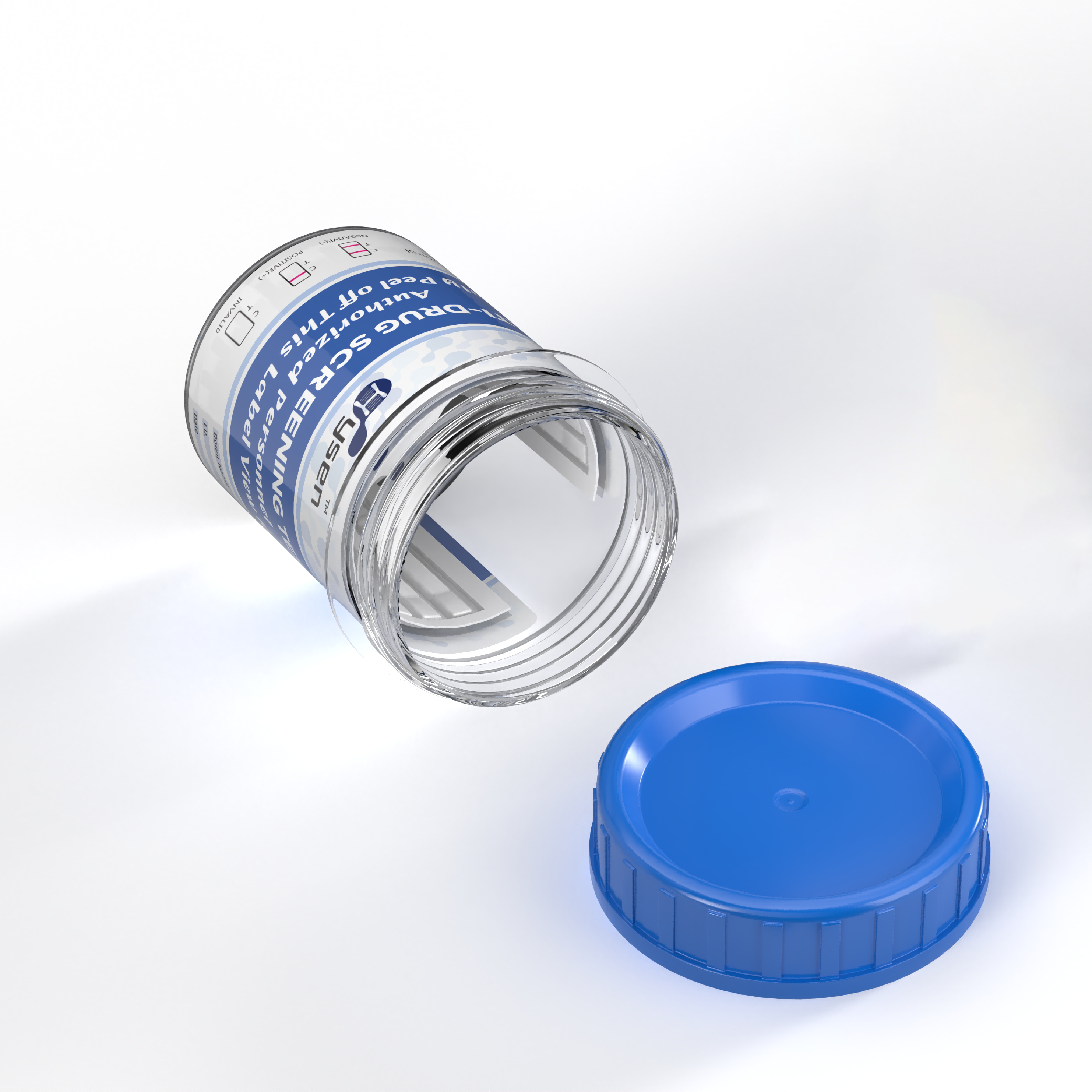Introduction to FDA Regulatory Processes
The Food and Drug Administration (FDA) plays a crucial role in safeguarding public health by regulating various consumer products. Among these are medical devices and drug screening kits, which are subject to stringent evaluation and categorization processes. Understanding the FDA's regulatory framework is vital for manufacturers, wholesalers, and even factory operators engaged in the production and distribution of these products. This article provides a comprehensive overview of FDA approval and clearance, specifically focusing on drug screening kits.
Understanding FDA Approval
Definition and Process
FDA approval is a rigorous process designed to ensure that the benefits of a medical product outweigh its risks. This is often necessary for products that present significant potential risks to health, such as prescription drugs and Class III medical devices. Manufacturers must submit a comprehensive premarket approval (PMA) application, which includes detailed clinical testing results. The application undergoes thorough review before the FDA grants approval, signaling that the product is both safe and effective for its intended use.
Significance of FDA Approval
For manufacturers and wholesalers, FDA approval is a critical step that allows products to be marketed and sold within the United States. It is a mark of quality and safety, reassuring consumers and healthcare providers alike. However, gaining approval is a significant investment in terms of time and resources, often requiring extensive clinical trials and substantial documentation.
Exploring FDA Clearance
Definition and Process
FDA clearance, on the other hand, is typically associated with products that pose moderate to low risk. These are often Class I or Class II medical devices, which can be marketed if they are deemed substantially equivalent to an already legally marketed product, known as a predicate. Manufacturers must submit a 510(k) premarket notification to demonstrate this equivalence. Instead of extensive clinical trials, the focus here is on comparative analysis with existing products.
Implications for Manufacturers
For manufacturers and factories, achieving FDA clearance is less resource-intensive than approval, making it a more feasible option for certain products. It enables quicker market entry and expands opportunities for innovation and iteration. However, this process does not guarantee immunity from legal liability, especially if the predicate devices have a history of recalls or safety issues.
Classifications of Medical Devices
Understanding Device Classes
The FDA categorizes medical devices into three classes based on their potential risk to users. Class I devices pose minimal risk, while Class II and Class III devices involve moderate to high risk, respectively. Each class dictates the level of regulatory control necessary, impacting the process of obtaining approval or clearance. For example, drug screening kits often fall under Class II, requiring a 510(k) premarket notification for clearance.
Statistics on Device Class Distribution
According to FDA data, 47% of medical devices are classified as Class I, 43% as Class II, and the remaining 10% fall under Class III. This distribution reflects the varying levels of scrutiny and regulatory requirements manufacturers and wholesalers must navigate to ensure compliance and market entry.
The Premarket Approval Process
Steps and Requirements
The premarket approval (PMA) process involves several critical steps designed to evaluate the safety and effectiveness of high-risk medical devices. These steps include submitting detailed clinical data, manufacturing information, and proposed labeling. The review process can be lengthy and complex, posing challenges for manufacturers and wholesalers in terms of time and cost.
Benefits and Challenges
The PMA process, while rigorous, offers a competitive advantage to manufacturers by providing assurance of quality and safety. It establishes consumer trust and enhances the product’s marketability. However, the challenges of navigating this process, particularly for factories and manufacturers, include high upfront costs and potential delays in product launch.
The 510(k) Premarket Notification Process
Key Procedures
The 510(k) premarket notification process is a pathway for clearing medical devices that are substantially equivalent to existing, legally marketed devices. Manufacturers must submit a notification demonstrating equivalence, which includes performance testing and safety data. This process is less burdensome than PMA but still requires thorough documentation and analysis to satisfy FDA requirements.
Advantages and Limitations for Manufacturers
For manufacturers and factories, the 510(k) process is advantageous in terms of lower costs and faster market access compared to PMA. It allows for innovative designs and incremental improvements on existing products. However, the reliance on predicates can be a limitation if previously cleared devices have known safety concerns.
Risk Factors and Regulatory Decisions
Evaluating Risks
The FDA’s regulatory decisions are driven by a balance of potential benefits and risks. High-risk products, usually in Class III, require extensive testing to mitigate potential hazards. Manufacturers must rigorously evaluate and document these risks as part of their submission process. Risk assessment is also crucial for wholesalers and factories to understand, as it impacts product liability and market strategies.
Impact on Market Strategy
Understanding FDA risk evaluations can influence market strategies for manufacturers and wholesalers. A product’s classification and the associated regulatory path can dictate pricing strategies, competitive positioning, and distribution approaches. Factories must align production capabilities with these requirements to meet demand while maintaining compliance.
Potential Pitfalls in FDA Clearance
Challenges with Predicate Devices
One major challenge in the FDA clearance process is the reliance on predicate devices. If a predicate is later found to have safety issues or is recalled, it can impact products that used it to gain clearance. Manufacturers need to conduct thorough due diligence to avoid future legal challenges or market recalls.
Legal and Financial Implications
Products cleared through the 510(k) process can still face legal scrutiny, especially if safety concerns arise. Manufacturers and wholesalers must be prepared for potential litigation costs and reputational damage. Factories must ensure stringent quality control and compliance to minimize these risks.
Legal Implications for Manufacturers
Understanding Liability
Despite achieving FDA approval or clearance, manufacturers and wholesalers are not immune from legal challenges. Defective products can lead to significant liability, necessitating robust legal strategies and comprehensive risk management. Factories must maintain meticulous records and enforce strict compliance measures to protect against legal claims.
Strategies for Legal Protection
Collaborating with experienced legal counsel is essential for manufacturers to navigate the complexities of FDA regulations and potential litigation. Wholesalers and factories should consider reviewing their supply chain processes and enhancing product documentation to support their defense in legal disputes.
Future Trends in FDA Regulations
Technological Advancements
As technology continues to evolve, the FDA is likely to update its regulatory framework to address emerging innovations in medical devices and drug screening kits. This presents opportunities for manufacturers, wholesalers, and factories to introduce cutting-edge products, provided they align with updated compliance standards.
Implications for the Market
Future regulatory trends may impact market dynamics, influencing how manufacturers and wholesalers approach product development and distribution. Factories should stay informed about potential changes to anticipate shifts in production strategies and maintain a competitive edge in the market.
Hysen Provide Solutions
Hysen offers comprehensive solutions tailored to navigate the complexities of FDA regulatory processes. By providing expert guidance on premarket submissions and compliance strategies, Hysen assists manufacturers, wholesalers, and factories in achieving both clearance and approval. With a focus on minimizing risks and enhancing market readiness, Hysen ensures a seamless path from product development to market launch, empowering businesses to thrive in the competitive landscape of medical and drug screening devices.
User hot search: 510K Drug Screening Kit
Post time: Sep-02-2025
















